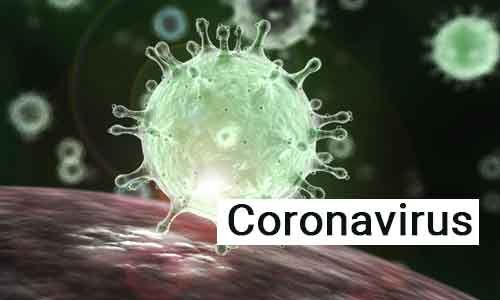- Home
- Medical news & Guidelines
- Anesthesiology
- Cardiology and CTVS
- Critical Care
- Dentistry
- Dermatology
- Diabetes and Endocrinology
- ENT
- Gastroenterology
- Medicine
- Nephrology
- Neurology
- Obstretics-Gynaecology
- Oncology
- Ophthalmology
- Orthopaedics
- Pediatrics-Neonatology
- Psychiatry
- Pulmonology
- Radiology
- Surgery
- Urology
- Laboratory Medicine
- Diet
- Nursing
- Paramedical
- Physiotherapy
- Health news
- Fact Check
- Bone Health Fact Check
- Brain Health Fact Check
- Cancer Related Fact Check
- Child Care Fact Check
- Dental and oral health fact check
- Diabetes and metabolic health fact check
- Diet and Nutrition Fact Check
- Eye and ENT Care Fact Check
- Fitness fact check
- Gut health fact check
- Heart health fact check
- Kidney health fact check
- Medical education fact check
- Men's health fact check
- Respiratory fact check
- Skin and hair care fact check
- Vaccine and Immunization fact check
- Women's health fact check
- AYUSH
- State News
- Andaman and Nicobar Islands
- Andhra Pradesh
- Arunachal Pradesh
- Assam
- Bihar
- Chandigarh
- Chattisgarh
- Dadra and Nagar Haveli
- Daman and Diu
- Delhi
- Goa
- Gujarat
- Haryana
- Himachal Pradesh
- Jammu & Kashmir
- Jharkhand
- Karnataka
- Kerala
- Ladakh
- Lakshadweep
- Madhya Pradesh
- Maharashtra
- Manipur
- Meghalaya
- Mizoram
- Nagaland
- Odisha
- Puducherry
- Punjab
- Rajasthan
- Sikkim
- Tamil Nadu
- Telangana
- Tripura
- Uttar Pradesh
- Uttrakhand
- West Bengal
- Medical Education
- Industry
WHO releases technical guidance on management of Coronavirus patient

Delhi: World Health Organisation (WHO) has released technical guidance on the management of Coronavirus PatientClinical management of severe acute respiratory infection when novel coronavirus (nCoV) infection is suspected. This document is intended for clinicians taking care of hospitalized adult and pediatric patients with a severe acute respiratory infection (SARI) when a nCoV infection is suspected. It is not meant to replace clinical judgment or specialist consultation but rather to strengthen clinical management of these patients and provide up-to-date guidance. Best practices for SARI including IPC and optimized supportive care for severely ill patients are essential.
Early supportive therapy and monitoring
- Give supplemental oxygen therapy immediately to patients with SARI and respiratory distress, hypoxaemia, or shock.
Remarks: Initiate oxygen therapy at 5 L/min and titrate flow rates to reach target SpO2 ≥90% in non-pregnant adults and SpO2
≥92-95 % in pregnant patients.1,2 Children with emergency signs (obstructed or absent breathing, severe respiratory distress,
central cyanosis, shock, coma or convulsions) should receive oxygen therapy during resuscitation to target SpO2 ≥94%; otherwise,
the target SpO2 is ≥90%.
4 All areas where patients with SARI are cared for should be equipped with pulse oximeters, functioning
oxygen systems and disposable, single-use, oxygen-delivering interfaces (nasal cannula, simple face mask, and mask with
reservoir bag). Use contact precautions when handling contaminated oxygen interfaces of patients with nCoV infection.
Use conservative fluid management in patients with SARI when there is no evidence of shock.
Remarks: Patients with SARI should be treated cautiously with intravenous fluids, because aggressive fluid resuscitation may
worsen oxygenation, especially in settings where there is limited availability of mechanical ventilation.16
Give empiric antimicrobials to treat all likely pathogens causing SARI. Give antimicrobials within one hour of initial patient
assessment for patients with sepsis.
Remarks: Although the patient may be suspected to have nCoV, administer appropriate empiric antimicrobials within ONE hour
of identification of sepsis.17 Empiric antibiotic treatment should be based on the clinical diagnosis (community-acquired
pneumonia, healthcare-associated pneumonia [if the infection was acquired in a healthcare setting], or sepsis), local epidemiology and
susceptibility data, and treatment guidelines. Empiric therapy includes a neuraminidase inhibitor for the treatment of influenza when
there is local circulation or other risk factors, including travel history or exposure to animal influenza viruses.18 Empiric therapy
should be de-escalated on the basis of microbiology results and clinical judgment.
- Access the document
Home care for patients with suspected novel coronavirus (nCoV) infection presenting with mild symptoms and management of contacts
WHO has developed this rapid advice note to meet the need for recommendations on the safe home care for patients with suspected novel coronavirus (2019-nCoV) infection presenting with mild symptoms and public health measures.
Closely monitor patients with SARI for signs of clinical deterioration, such as rapidly progressive respiratory failure and sepsis,
and apply supportive care interventions immediately.
Remarks: Application of timely, effective, and safe supportive therapies is the cornerstone of therapy for patients that develop
severe manifestations of 2019-nCoV.
Understand the patient's co-morbid condition(s) to tailor the management of critical illness and appreciate the prognosis.
Communicate early with patient and family.
Remarks: During intensive care management of SARI, determine which chronic therapies should be continued and which
therapies should be stopped temporarily. Communicate proactively with patients and families and provide support and prognostic
information. Understand the patient's values and preferences regarding life-sustaining interventions.
For further reference log on to :
Hina Zahid Joined Medical Dialogue in 2017 with a passion to work as a Reporter. She coordinates with various national and international journals and association and covers all the stories related to Medical guidelines, Medical Journals, rare medical surgeries as well as all the updates in the medical field. Email: editorial@medicaldialogues.in. Contact no. 011-43720751
Dr Kamal Kant Kohli-MBBS, DTCD- a chest specialist with more than 30 years of practice and a flair for writing clinical articles, Dr Kamal Kant Kohli joined Medical Dialogues as a Chief Editor of Medical News. Besides writing articles, as an editor, he proofreads and verifies all the medical content published on Medical Dialogues including those coming from journals, studies,medical conferences,guidelines etc. Email: drkohli@medicaldialogues.in. Contact no. 011-43720751


